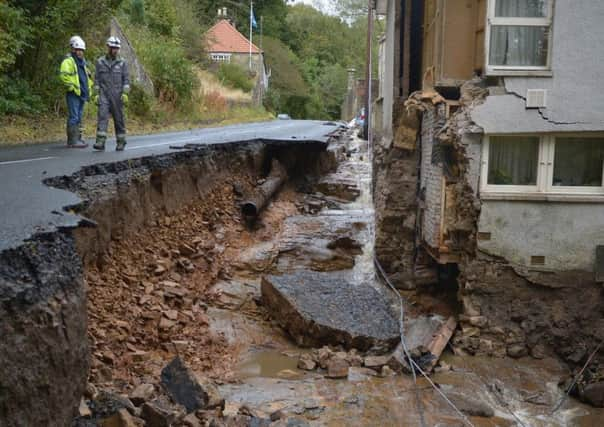Ilona Amos: Scotland must step up climate change preparation


The impacts of climate change are already becoming increasingly apparent here in Scotland, as in many other parts of the world. We are seeing temperatures hotting up year on year, the seasons becoming wetter and sea levels rising.
Wet and stormy conditions last winter saw many regions deluged by flooding as seemingly incessant rain fell on already waterlogged ground. Thousands of people were forced to flee their homes as rivers burst their banks and engulfed whole villages.
Advertisement
Hide AdAdvertisement
Hide AdCoastlines and architectural and archaeological heritage are under growing threat of destruction by the elements, while evidence shows nature is already suffering. Major ongoing population declines are being witnessed in many native species, as plants, animals, birds and marine life retreat northwards, to higher ground or cooler waters.
We are also seeing more and more invasive alien species appearing – and thriving – on our shores, as well as previously unknown pests and diseases spreading from other countries.
In an effort to tackle the problems that come along with a warming climate Scottish ministers set out a raft of objectives, policies and proposals in the Scottish Climate Change Adaptation Programme, published in 2014. They also invited a group of independent experts from the Committee on Climate Change (CCC) to evaluate the country’s performance. The first annual report, by the CCC’s Adaptation Sub-Committee, has been released today.
It found there is a lot of good work taking place but also highlighted areas where there is much room for improvement. Rather worryingly, the team was unable to establish whether adequate steps were being taken in some sectors due to a lack of monitoring or insufficient information at a national scale.
The main recommendation is that the Scottish Government should state more clearly what it intends to do and better monitor whether and how effectively it’s being done. It also suggests setting timescales for action and identifying parties to be responsible. But the report also calls for an “urgent and comprehensive” review of measures to guard against the long-term dangers from extreme weather and flooding in particular.
Sub-committee chairman Lord Krebs concludes that there is plenty of action under way and much of it is on track, but he says “it’s not clear what’s being achieved and whether risks are being adequately managed”. He insists Scotland must now develop unambiguous action plans and better ways to assess progress.
The report earmarks key areas that need more work. It warns that despite milder winters being likely to lower the death toll from cold and reduce certain pressures on infrastructure, human health could still be at risk. For instance there is concern over emergency response plans for unusually hot weather, plus future hazards from UV radiation and vector-borne pathogens such as Lyme disease and Zika virus have not yet been considered.
It suggests the resilience of our natural environment could be improved by stepping up restoration of peatlands and native forests, improving water management and taking better care of agricultural land and fisheries.
Advertisement
Hide AdAdvertisement
Hide AdThe sub-committee also believe Scots should ramp up efforts to capitalise on the business opportunities that come from climate change.
This assessment is just “a first stocktake” in an ongoing process. But hopefully the findings will be taken on board and incorporated into the next adaptation programme, due out in 2019.